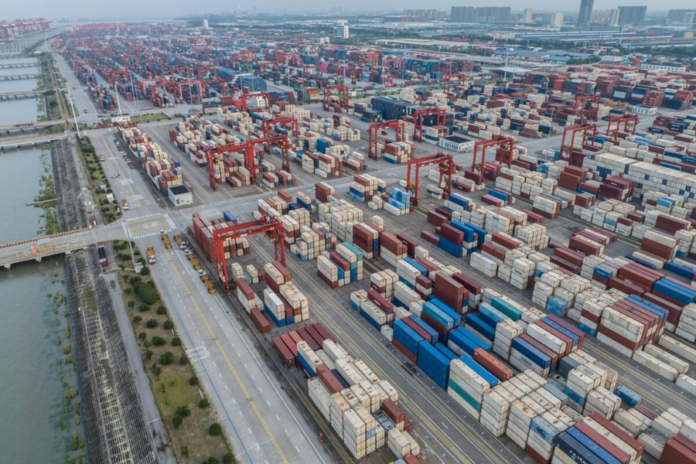As regulators work to address a real estate market slump, China’s economic growth is stalling, with problems at big developer Country Garden coming to light. There are growing worries about whether the second-largest economy in the world is approaching a breaking point:
Reasons for China’s economic slowdown
During the COVID-19 pandemic, unlike consumers in the West, Chinese citizens were mostly left to fend for themselves, and the bounce back spending frenzy that some economists anticipated once China reopened never happened.
Furthermore, Chinese export demand has been declining as major trade partners struggle with growing living expenses.
Additionally, a significant slowdown in the sector is spreading to other areas of the economy given that real estate accounts for 70% of Chinese households’ wealth.
Big concern over Chinese economy
Both the global financial crisis of 2008–2009 and a potential capital outflow scare in 2015 raised concerns about the state of the economy. China restored confidence at that time, among other things, by giving infrastructure investment a startling rise and promoting housing market speculation.
However, the property bubble has burst and the infrastructure improvements have generated too much debt, creating hazards to the current state of the economy.
China only has one other source of demand to experiment with: household spending, as debt-fueled investment in infrastructure and real estate has reached its peak and exports are falling in pace with the global economy.
This slowing is distinct in that regard.
China’s ability to recover essentially hinges on its ability to persuade consumers to spend more and save less, and if they will do so to such an extent as to make up for deficiencies in the economy elsewhere through increased consumer demand.
Is China’s low household spending a problem?
Even before the COVID-19 pandemic, household consumption as a share of GDP was among the lowest in the world. Economists identified this as a critical structural mismatch in an economy that relied too much on debt-fueled investment.
The lack of investment enthusiasm in the private sector and China’s entry into deflation in July are both attributed to weak domestic demand, according to economists. Deflation has the potential to exacerbate the current economic slump and increase debt issues if it continues.
The gap between investment and consumption is wider than it was for Japan before to the start of that country’s “lost decade” of economic stagnation in the 1990s.
China’s household spending as a percentage of GDP is lower than that of the majority of other nations.
China’s economic slowdown may worsen
Some economists have warned that China may find it difficult to reach its 5% economic growth target for 2023 if it doesn’t increase government spending as a result of recent weak data readings.
Even though 5% is still significantly greater than many other major economies would see, experts say it is still a disappointing growth rate for a country that invests nearly 40% of its GDP annually or about twice as much as the US.
Given the high amounts of municipal debt, there is also concern regarding the government’s willingness to implement significant fiscal stimulus.
China’s debt is thrice its GDP
Some economists have warned that China may find it difficult to reach its 5% economic growth target for 2023 if it doesn’t increase government spending as a result of recent weak data readings.
Even though 5% is still significantly greater than many other major economies would see, experts say it is still a disappointing growth rate for a country that invests nearly 40% of its GDP annually or about twice as much as the US.
Given the high amounts of municipal debt, there is also concern regarding the government’s willingness to implement significant fiscal stimulus.
China’s property sector performance
However, other economists assert that given youth unemployment rates above 21% and deflationary pressures pushing on profit margins, many consumers and small companies may already be experiencing economic suffering on a par with that experienced during a recession.
Will interest rate cuts boost the Chinese economy?
To relieve pressure on their profit margins and free up space to lower borrowing costs for borrowers, including by decreasing mortgage rates, major Chinese banks reduced interest rates on a variety of yuan deposits on Friday.
While policymakers believe that lower rates will increase consumption, economists warn that this is not the case because of the concomitant deposit rate decreases, which shift money from those who save to those who borrow. The long-term effects of resource transfers from the public sector to households would be more significant.
Rate reductions could increase the likelihood of the yuan depreciating and capital flight, both of which China will be keen to prevent.
To combat pressure on the yuan, China’s central bank announced on Friday that it will reduce the amount of foreign currency that financial institutions must maintain as reserves for the first time this year.
Way out for China
Economists favour policies that would increase the GDP share of home consumption.
Government-funded consumer vouchers, large tax reductions, promoting quicker wage growth, constructing a social safety net with greater pensions, unemployment benefits, and better, more accessible public services are some alternatives.
A recent Chinese Communist Party (CCP) leadership meeting did not mention such actions, but analysts are anticipating more significant structural adjustments at the party conference in December.



